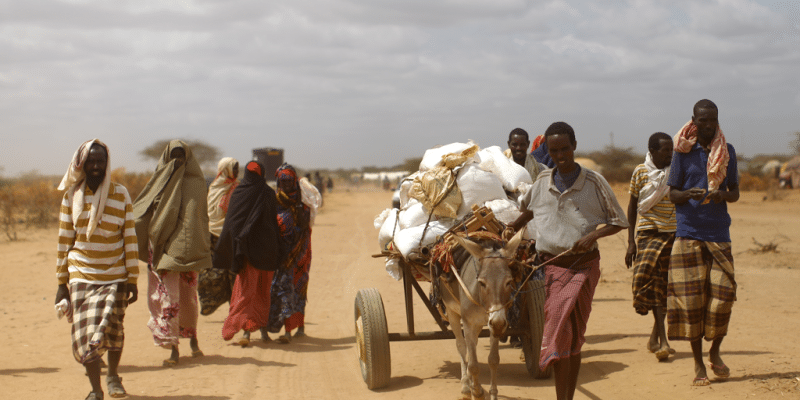According to the World Bank, by 2050 at least 216 million people, mainly in sub-Saharan Africa, will be moving within their own countries or to other countries to escape the serious consequences of climate change.
The World Bank has never been more concerned. According to its report, up to 216 million people worldwide will be climate migrants by 2050. This figure refers specifically to people who will be forced to move “within their own country” because of rising sea levels, floods, droughts and cyclones.
These are scenarios that will recur, particularly in Africa, if nothing is done in the meantime to reduce greenhouse gas (GHG) emissions as recommended by the Intergovernmental Panel on Climate Change (IPCC). According to World Bank forecasts, 105 million people will be internally displaced as a result of this climate chaos.
Nigeria is one of the five most vulnerable countries, alongside Pakistan, the Philippines, China and India in Asia. The population of this West African country (one of the most populous on the continent with 213 million inhabitants), which will have doubled by 2050, is likely to be exposed to pollution peaks and extreme heat, which will compromise agriculture and biodiversity.
Read also-
The United Nations (UN) is already fearing tensions between the countries of the North, considered to be the biggest polluters, and those of the South, which do not yet have sufficient resources to adapt to climate change. “The poorest people have every right to be angry. They are suffering from an unprovoked climate crisis, broken financial promises and exorbitant borrowing costs”, laments UN Secretary General António Guterres.The next round of environmental negotiations promises to be decisive for the fate of humanity.
Benoit-Ivan Wansi







